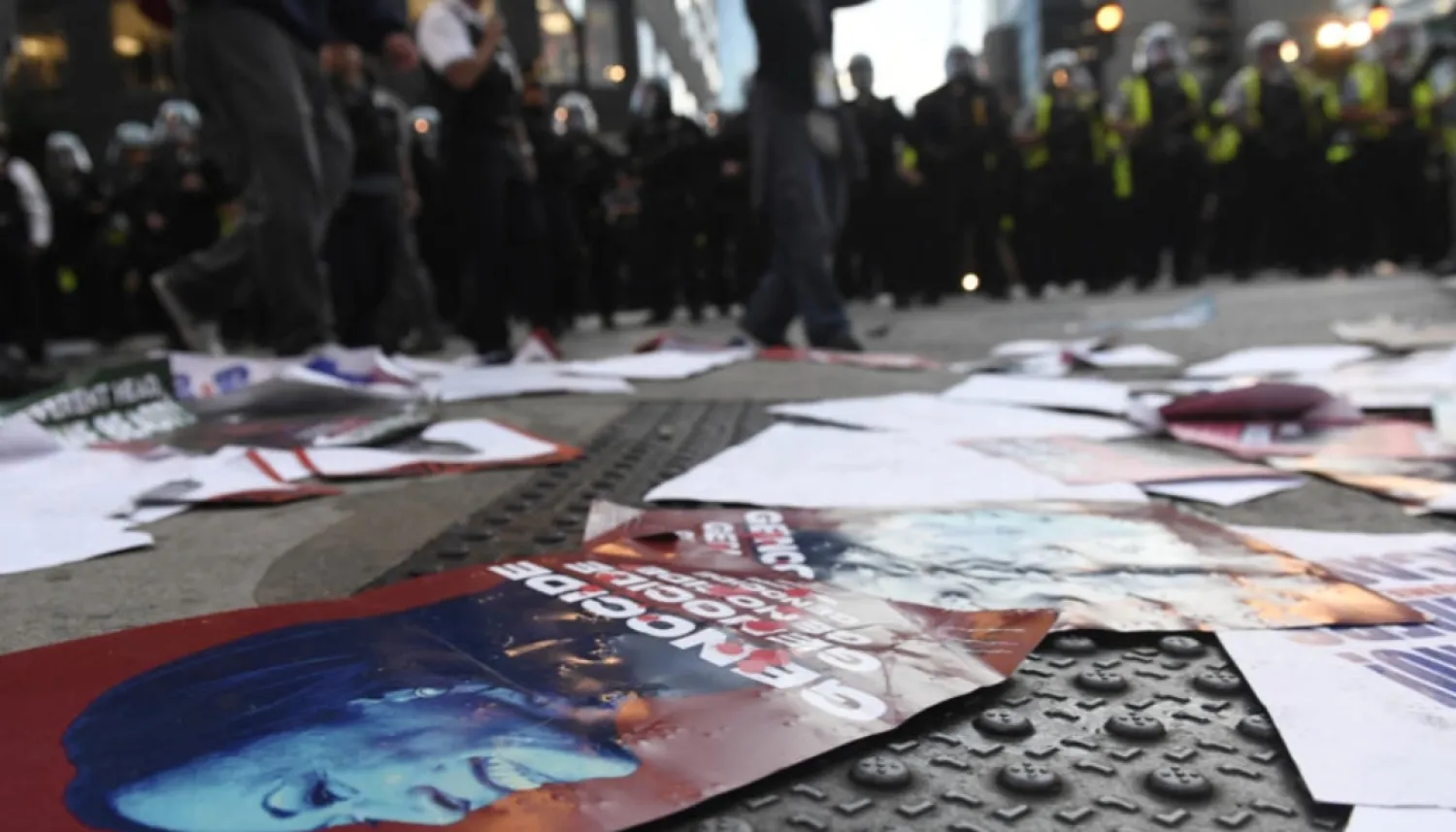Kamala Harris is making her pitch to voters as a muscular defender of US interests while aiming for nuance on the painful issue of Gaza -- hoping to cover vulnerabilities and to paint Republican Donald Trump as the more risky candidate on national security.
In her speech accepting the Democratic nomination for president, the vice president vowed to "not cozy up to tyrants and dictators" who can flatter Trump as he "wants to be an autocrat himself."
The message predictably was one of continuity with her current boss President Joe Biden. But it also made her a rare Democrat to seek the White House on a message of being tougher on the world stage than the Republican, AFP reported.
Biden ran for president promising to end "forever wars" and pulled out of Afghanistan after 20 years.
Barack Obama, succeeding war leader George W. Bush, at his inauguration invited US adversaries to dialogue if "you unclench your fist."
Trump, while insisting that he also wants the United States out of foreign military engagements, frequently boasts of his readiness to threaten extreme force -- or what he calls "peace through strength."
Striking a hawkish note herself, Harris boasted she would maintain "the strongest, most lethal fighting force in the world" and warned she would strike back at any Iranian-backed attack.
At a Chicago party convention that prominently featured veterans, Harris also vowed solidarity with Ukraine as she denounced Trump's threats not to defend NATO allies if he feels they are not paying enough.
Harris is vying to be the first female US president and therefore "needs to go above and beyond what a male candidate would need to do to demonstrate that she is strong," said Allison McManus of the left-leaning Center for American Progress.
"The public will still have an impression of a woman as being inherently a weaker leader than a man, and she needs to make up for that by being very explicit and clear about her commitment to defense," McManus said.
Harris's emphasis on force, McManus said, should not be confused with a truly hawkish foreign policy.
Harris won the biggest applause lines in her foreign policy section when she spoke of the suffering of Palestinians and promised to work so they "can realize their right to dignity, security, freedom and self-determination."
Biden has faced heated criticism from the left for his support of Israel in its relentless campaign in Gaza in response to Hamas' October 7 attack.
Harris also pledged to "always stand up for Israel's right to defend itself." Some pro-Palestinian activists, who rallied on the Chicago streets, voiced outrage that the Democrats gave the podium to parents of hostages held by Hamas in Gaza and not to Palestinians.
Biden himself has urged Israeli Prime Minister Benjamin Netanyahu to do more to protect civilians and to drop opposition to a Palestinian state -- stances few expect from Trump.
But McManus said Harris's choice of the phrase "self-determination" marked an important reframing.
"It recognizes that Palestinians are a people, that they have rights and that they should be the ones who have a say in their own future," she said.
Critics, however, note that Biden with one exception has not used the key tool to pressure Israel -- restricting some of the billions in US weapons it receives.
Some activists have voiced more hope for Harris as she was the first senior US official to urge a ceasefire and her closest foreign policy advisor, Phil Gordon, wrote a book critical of US policy on the Middle East.
Gordon, however, has made clear that Harris does not support an arms embargo on Israel.
"I was fairly disappointed that she did not take this opportunity to try to at least send a stronger signal that she might be willing to break from the current administration," said Annelle Sheline, who resigned from the State Department in March to protest policy on Gaza.
"At the same time, I've not completely given up hope," she said.
Sheline, now at the Quincy Institute for Responsible Statecraft, said that US political calculations have long been that there is more to lose by being insufficiently pro-Israel.
"I think it may take a while for American politicians to learn that, actually, that has started to change," she said.
















